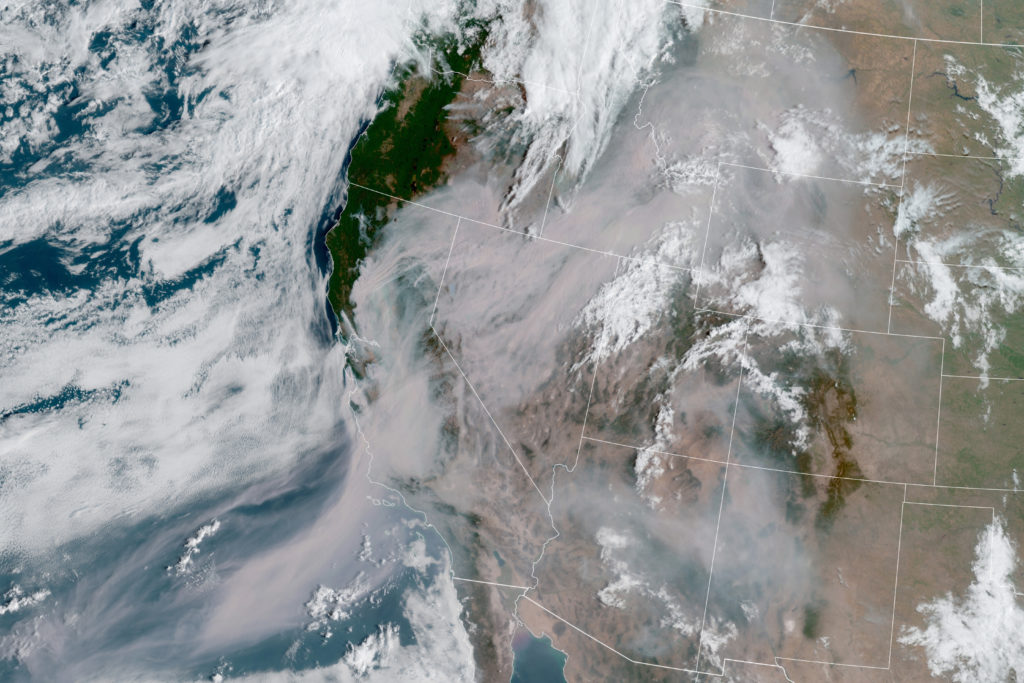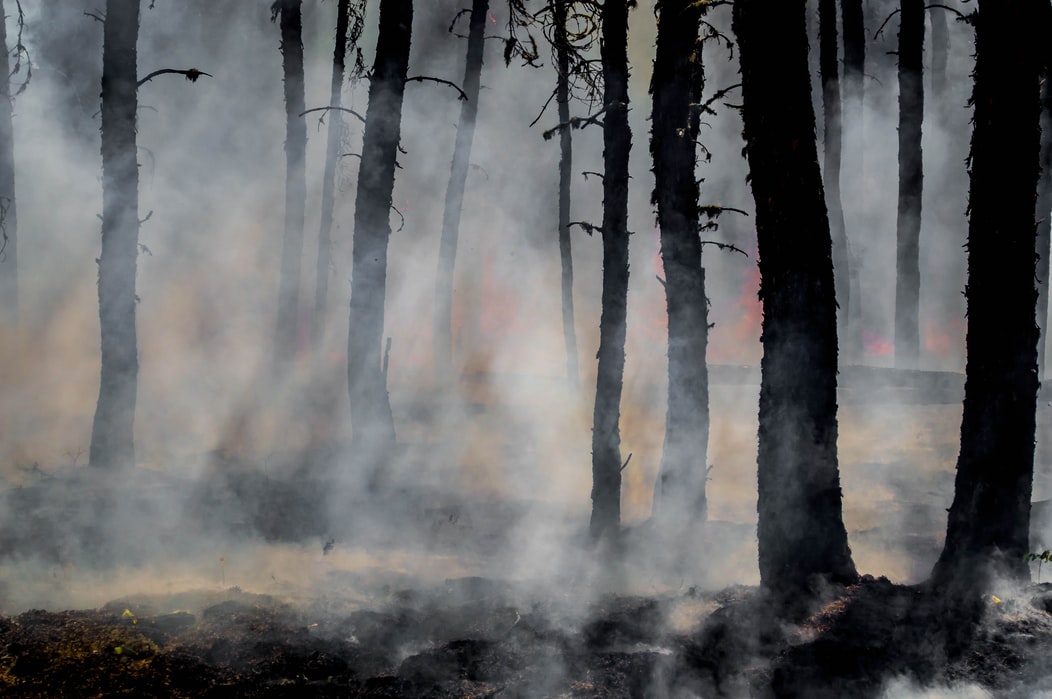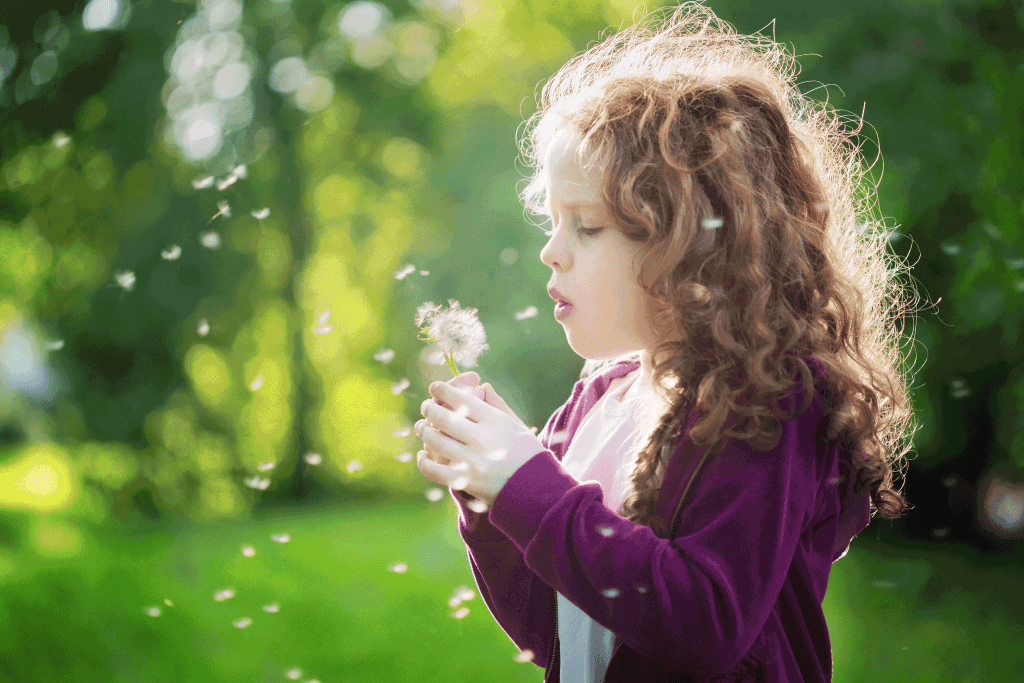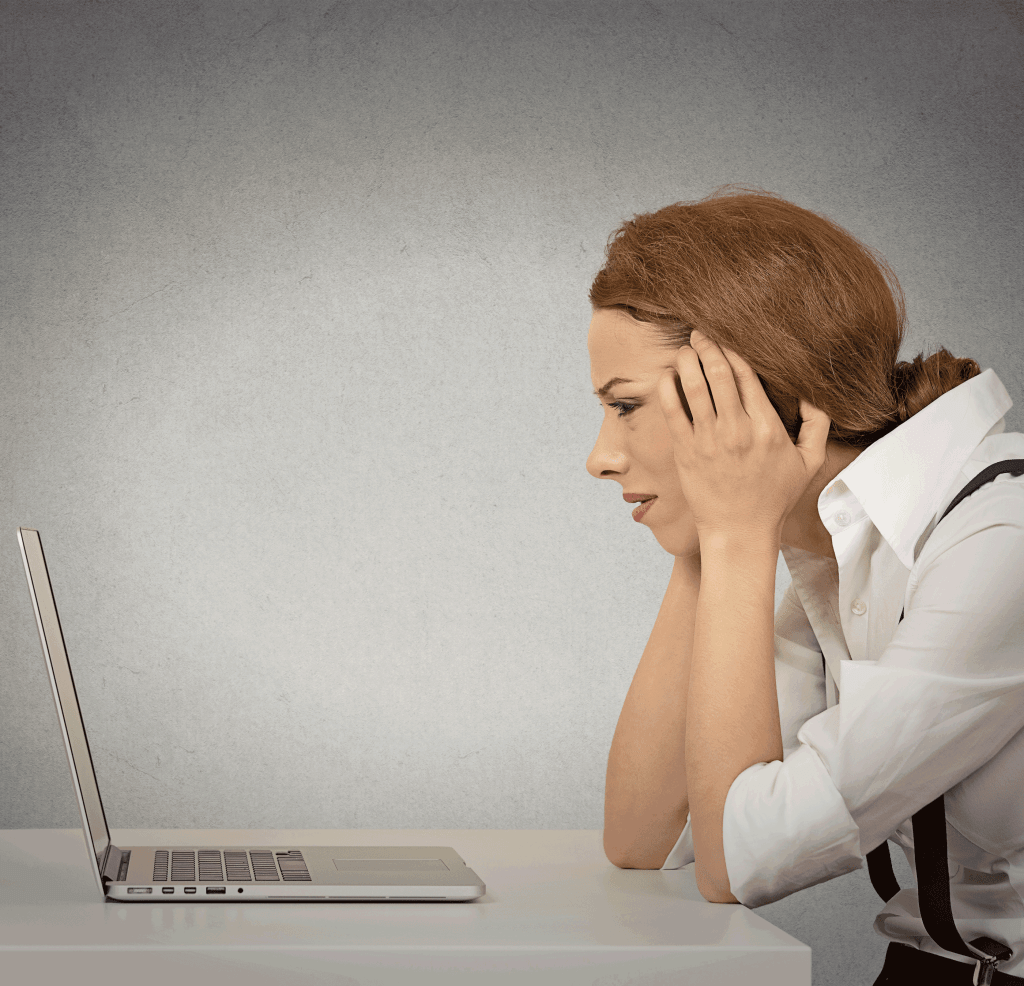The year 2020 will be known for many things, but aside from the global viral pandemic, it will also be remembered for having one of the worst heatwaves historically in the US, along with the worst wildfire season on record. As of this writing, wildfires have sprung around the western United States as a result of lightning strikes setting tinder and fuel in the forests on fire.
The most heavily affected states are California, Colorado, Washington, Oregon and Montana, but there are at least eight other states where large uncontained fires have broken out. The need for protecting your home is important.
Even if you aren’t in the immediate danger zones, the risk of a wildfire is still ever present, and the smoke and air pollution from the fires will affect everyone in the country one way or another as the smoke settles. Right now, the western United States is covered in wildfire smoke and it can be seen from satellite images as the smoke moves into the Pacific Ocean.

Wildfire smoke is dangerous because they contain main particulates and aerosols, which aren’t visible to the naked eye but stay aloft in the air for hours or even days, degrading air quality and causing respiratory problems for people such as asthma. Long term exposure to the particulates of this smoke can even cause cancer and heart disease. The health effects of wildfire smoke are unfortunately very real.
Scientists have noted that the amount of smoke this year is highly-unusual. Wildfires happen every year, but even considering how 2020’s historical heatwave has made things worse, the level of smoke we are seeing this year goes well beyond anyone’s expectations.
What can be done about the smoke? There are many things you can do to lessen the impact the smoke will have on your lives. If you aren’t among those unfortunate to need to evacuate their homes, you can do the following things to help lessen the impact on your family.
- Stay Indoors. In the occupational safety industry the best way to protect yourself, is to avoid the dangers altogether. The wildfires have thrown smoke, soot and particulates all over the air, making outdoor air pollution worse than usual. Work around this by staying home or indoors as much as possible.
- Keep windows and doors closed. Keeping the indoor air clear is important. We can protect our houses and our homes simply by closing the doors and windows at all times. Use fans and air conditioning to stay cool through this difficult time and limit the opening of these portals to the outside air as much as possible.
- Use a high-efficiency filter in your ventilation system. If you don’t ventilate your home, though, the air will grow stale and your air quality will suffer. Your ventilation system has to pull in fresh air from the outside, but if the air isn’t fresh due to the smoke a filter will do the trick. Install a good filter on your ventilation system to keep breathing the good air.
- Avoid activities that create particulates indoors. You can’t rely on opening the windows to ventilate your home, so these activities are no-no’s for the time being.
- Smoking (cigarettes or vapes)
- Cooking with gas, propane or wood-burning stoves. Use electric stoves for now.
- Aerosol sprays. These include spray deodorants and air-fresheners. Find non-spray alternatives.
- Frying or broiling food. Use different cooking methods for the meantime.
- Burning candles or incense. Use electric lamps if needed.
- Vacuuming. This stirs up the particulates in your house. Use a broom for now.
- Monitor the air in your home. Lastly, get an indoor air quality monitor. uHoo’s air quality monitor can detect the levels of PM2.5 particulate matter in your home, and knowing when the levels are high lets you take the steps to sort the problem out, which involves using ventilation to get the particles out of your living space.
In the end, keeping your home safe is a challenge because we are at the whim of mother nature. It’s unclear at this point how long the smoke will hang in the air. It depends a lot on the weather. A strong windy day along with some rain will help clear the air, but it’s unfortunate as wildfire season in August tends to come with hot days without much wind blowing.
Take care of yourself and your family and observe the best practices to lessen the impact of the wildfires and the smoke on your home.







